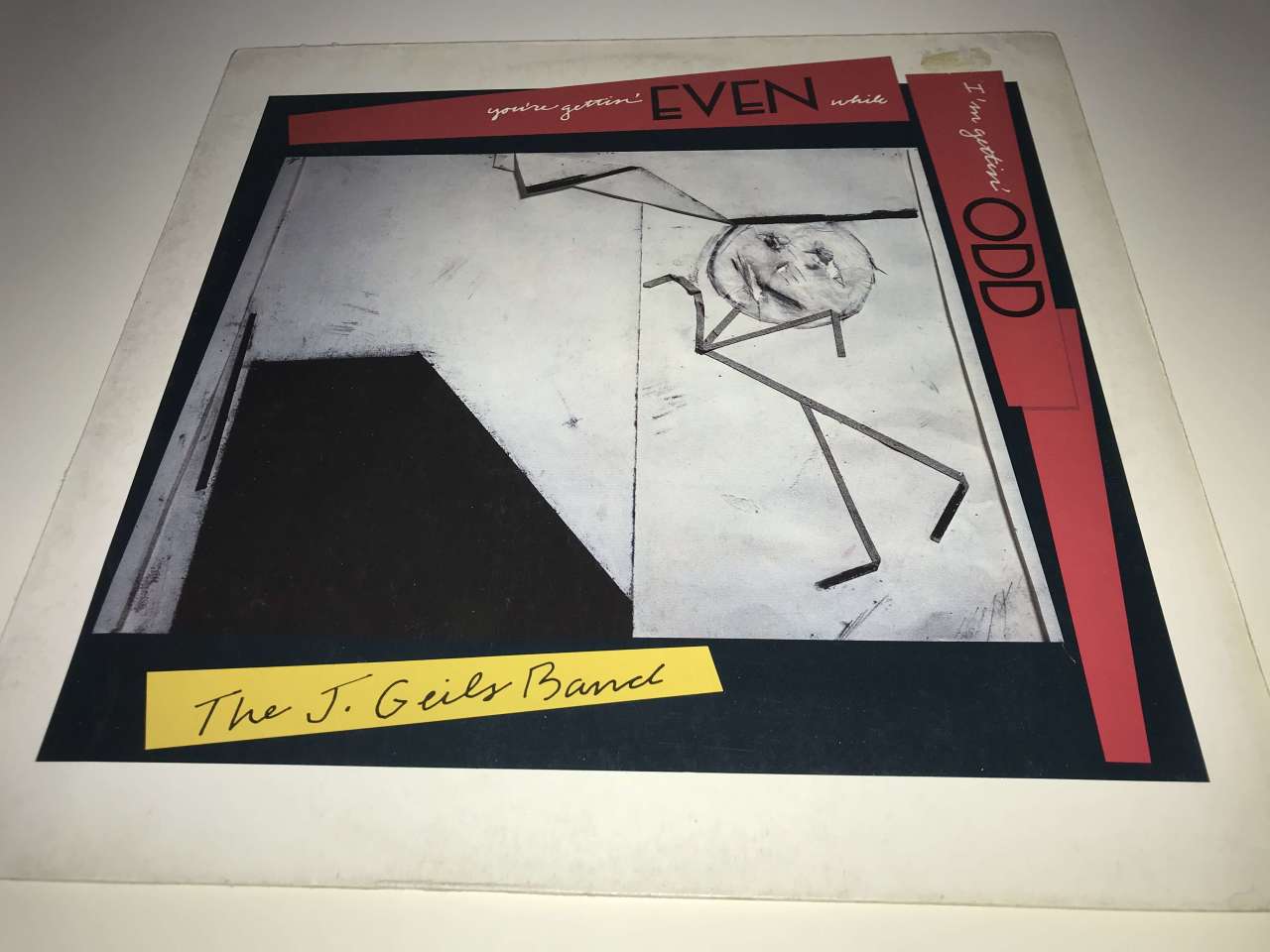
He was not replaced, and Seth Justman took over most of the vocal duties. The band went on to record one more album of new material, You're Gettin' Even While I'm Gettin' Odd, after Wolf left. Wolf left the group in 1983 for a solo career not long after, over disagreements about whether to continue to take the band in more of a popular direction, or continue with the purist tradition. The group's commercial fortunes improved in the early 1980s, first with the humorous "Love Stinks", then with their great success with the Freeze Frame album which included "Centerfold" (#1 for six weeks on the Billboard Hot 100) and then the title cut (#4). Besides the well-known aforementioned "First I Look at the Purse" from The Contours, they covered the more obscure "I Do" from The Marvelows and "Ain't Nothing But a House Party" from The Showstoppers.

The band had good success covering soul singles. Later in the 1970s, the band signed with EMI America Records. Geils Band first received FM radio airplay with the live single "First I Look at the Purse", then had several hit singles in the 1970s, the most successful of which was "Must Of Got Lost" (1974). The following year Seth Justman joined as an organist, and the group signed to Atlantic Records in 1970. In 1967 the band switched focus, starting to play electric guitar and bass and recruiting drummer Stephen Jo Bladd and fast-talking ex-disc jockey singer Peter Wolf, born Peter Blankenfeld, both from Boston. The band formed under the name Snoopy and the Sopwith Camels while Geils was attending Worcester Polytechnic Institute for a couple of semesters. Funk) and harpist Richard Salwitz (stage name Magic Dick). Geils (born Februdied April 10, 2017), bassist Danny Klein (Dr. The band started as an acoustic blues trio in the mid 1960s with singer and guitarist J. Geils Band was an American music group from Worcester, Massachusetts, USA that had a successful blues-rock/R&B-influenced sound in the 1970s, before moving towards a more pop-influenced sound in the 1980s, which brought them MTV airplay and their 1982 international hit single "Centerfold".

Suggest a correction in the comments below. Once again, I plead for your help, but I am afraid to lose you for goodĬontributed by Peyton W. Our past had moments of both love and chaos Maybe I've gone too far down the wrong path to come back I feel like I have no direction or purpose without you I need your help, but I don't want to lose you again by waiting too long to reach out I don't understand where I made a mistake I am lost without you and need your guidance I wonder if this is the inevitable cost of losing you Those moments were the happiest, brightest times of my lifeīut with each passing day without you, I become more and more depressed I have vivid memories of every moment we shared together The chorus, "Please help me, but don't wait too long," suggests that he's aware that time is running out and that he needs to act fast if he wants to set himself on the right path. The protagonist seems to be grappling with his own shortcomings and searching for a way to make things right. Overall, the song seems to be a meditation on regret, lost opportunities, and the desire for redemption. He's questioning whether he's lost or forgotten, if he's strayed too far from home, and if he's destined to find his way alone. It's not entirely clear who Teresa is or what their relationship to the protagonist is, but it's evident that he's looking to her for guidance. It's unclear what exactly this memory is, but it's enough to make him wonder if his current misery is a punishment for some past wrongdoing.Īs the song continues, the protagonist seems to be directing his questions at a certain "Teresa." He's asking her what he should do next and where he went wrong. The opening lines, "I remember every moment/And this color, the brightest day/And every dawn, my heart turns darker/Is this the price I must pay?" seems to suggest that the protagonist of the song is clinging onto a memory of happiness or an idyllic time in his life. As the song progresses, it's clear that he's struggling to come to terms with the consequences of his actions. Geils Band's song Teresa appears to be a reflective piece about a man who is lamenting the choices he's made in his life.


 0 kommentar(er)
0 kommentar(er)
